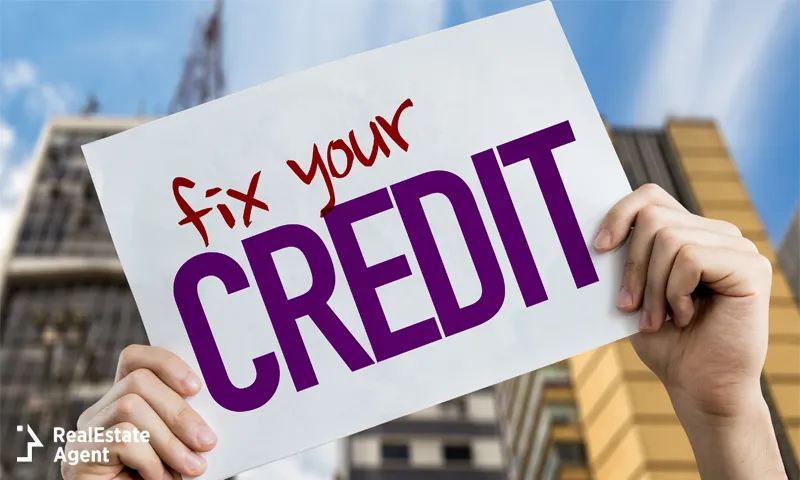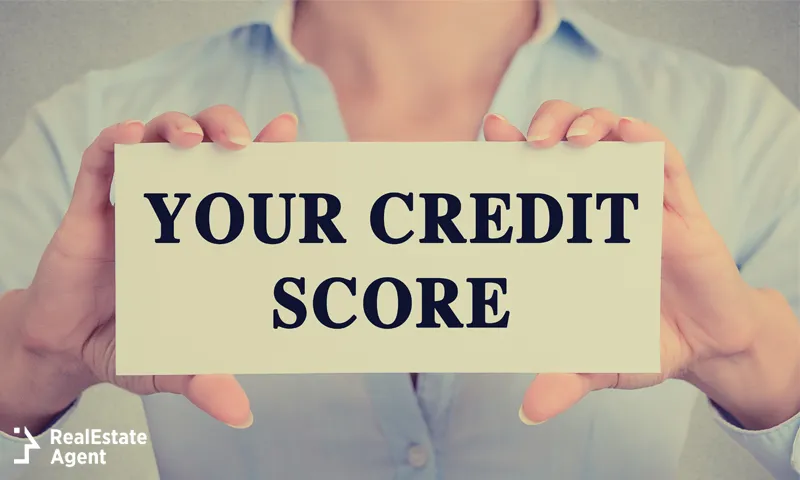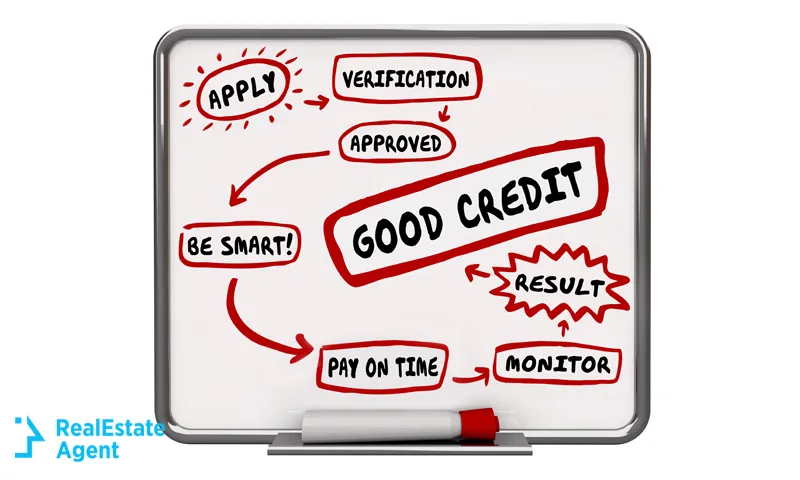
The almighty Credit Score: The banking industry revolves around it. Landlords demand it. And everybody is concerned about their three digits that reveal how well they are doing financially. The FICO® Score and the VantageScore are two systems that measure your creditworthiness. Both can be between 300 and 850. Of course, the higher, the better. Understanding credit scores and how they impact real estate is crucial in order to take maximum advantage of all the money you can access. Due to the lack of financial education, though, many young adults find themselves with poor credit scores right before applying for a mortgage. If you are in a similar situation, you might wonder how to improve your credit score fast. This article covers all the answers in the following paragraphs so keep reading.
Nowadays, it’s more important than ever to have good money skills, especially as credit cards replace cash. What happens with our money? They become electronic money, electronic currencies - mere digits on a screen. Or even worst: pixels! Money is dematerializing right as we speak and we are left with no clue as to where they come from and where they disappear once we make a cash payment. Managing “virtual” money is more difficult than budgeting cash. Employers don’t make the job easier either as most of them pay their employees on a payroll card or via direct deposit in a bank account.
What cuts into your credit score?

You start building your credit score as a young adult, as soon as you have a utility bill or a phone bill in your name, which usually happens after you turn 18. Your parents can also make you an authorized user on their credit cards or help you correctly utilize one on your name. (Some parents even open a bank account for their children, helping them build their credit score from an early age.) A starter card should help you get used to borrowing and returning what you owe by a certain due date. Then, as you go into college, you may get a student loan. So, slowly but steadily, credit bureaus start receiving information about your credit. And you have to be aware of this as you make plans for the future.
The following actions may lower your credit score:
- Paying your bills too late
Your payment history weighs 35% in your credit score, so try to avoid late payments.
- Applying for more credit cards at a time
A sudden increase in the number of credit cards you own sends a bad signal to the credit bureau.
- Requesting a new credit card and leaving it dormant
Financial experts do not recommend that you do so.
- Paying too often with your credit cards
Having a huge balance on your cards sends bad signals to credit bureaus, making them think that you rely too heavily on credit.
- Canceling a credit card and relying only on one card
It is said that you should only use 30% of your credit limit, so to have access to more money, you should have at least two or three credit cards instead of using only one to the maximum. Exploiting only one credit card blemishes your financial image.
- Requesting credit limit increases
Some lenders make a hard pull on your credit report when increasing your limit, which in turn has a negative impact on your credit score. Some lenders, though, only make a soft pull, which doesn’t do any harm.
- Defaulting on a loan
This event stays on your credit report for years and lowers your credit score which makes it difficult to access a new loan. For example, it is known that student loans are a huge burden for many borrowers, and more than 5 million have already defaulted. According to debt[dot]org, about 11.4% of student loans are delinquent, too.
- Filing for bankruptcy
The action that makes your credit score plummet to the ground. If you have a good credit score, you wouldn’t probably file for bankruptcy. So, if your credit score is already bad (under 630), after filing for bankruptcy, you’ll have less than 500 points left. This doesn’t mean that you can’t get a loan with bad credit. You can, but it’s very likely that you’ll only have access to very expensive loans from private lenders.
How to improve your credit score?

A good credit score gives you access to the best interest rates on the market for all types of loans, from personal loans to mortgages. So, if you want to take advantage of it and make sure that you get approved for the next loan, don’t hurry but spend some time building up your creditworthiness.
Pay bills on time
Your payment history has a one-third share in your credit score. Even if you have to borrow some money from your family and friends, don’t make any payments after the due date. Set up Direct Debit for bills that you have to pay every month such as rent, electricity, water, cell phone, cable and so on.
Pay off the balance on your credit cards
Let’s suppose you have a credit limit of $10,000 across all your credit cards and a balance of $5,000. That means that you’re using 50% of your limit, which is more than the recommended 30%. Try to pay off at least $2,000 as soon as possible and rethink your shopping list. It’s not easy to know that you could spend up to $10,000 but for the sake of your credit score, you can only spend $3,000. It’s tempting, but you must have the maturity to say “no”, “not now” or “maybe later”.
Don’t apply for a new credit card
If you’re trying to increase your creditworthiness, the last thing you need is another credit card. Not only will there be a new hard inquiry on your credit report, but you will also be tempted to spend a lot more than you can afford, only making matters worse.
Include your rental payments in your credit report
Newer versions of the FICO® Score do include rental payments, however, if you’ve always paid your rent on time, you may benefit from a credit boost by allowing your rental payments to show up on your credit report. Unfortunately, you have to rely on rent-reporting services with costs that range from $0 to over $100. So, if you’ve just realized that owning is better than renting, don’t let the rent payments go in vain. Let them build your credit score and get you closer to a low-interest home loan.
Use a credit-builder loan
Everybody would like to know how to increase their credit score quickly. There’s no magic formula, just patience and perseverance. And a good way to practice these two is to access a credit-builder loan which is not really a loan, but rather a savings account. These loans are usually issued by credit unions and require borrowers to make monthly payments (including interest) for anywhere between 6 and 24 months. The loan doesn’t have to be huge. Ideally, you should demand a small one in order to be able to make the payments on time and prove to lenders that you are reliable and willing to return a loan. After you make all the payments, you end up with a nice sum in savings (which you probably wouldn’t have been able to save otherwise) and a good history of payments.
Try score-boosting programs
How to improve your credit score really fast? There are a couple of boosting programs available from credit bureaus that instantly take into consideration more data related to your finances. So, you may want to try ExperianBoost or UltraFICO. However, lenders who use an Equifax or TransUnion report won’t be able to see your new score, which only impacts your FICO and VantageScore.
Tap into someone’s good credit history
Yes, it is possible to improve your credit score by using someone else’s credit cards. Of course, that person should have a better credit score than yours. Become an authorized user on one of their credit cards and their account will show up in your reports, too. So, all on-time payments will make you look great and shall contribute to a higher credit score.
How long does it take to improve the credit score?
Do you want to know how to increase your credit score quickly? Everybody does. It’s the hunting of the century. To get a better understanding of how the credit score works, let’s imagine that it behaves like bread dough. If you want a foamy bread, then the dough must be leavened for hours. You can’t eat the dough raw; you have to put it into the oven to obtain the bread. Same with your credit report; you have to go to the bank and apply for a loan to obtain money. The dough needs time to rise, and so does your credit score. Now, if you don’t get the bread out of the oven on time, it may burn so bad that you’d have to throw it away. With a loan, if you don’t pay on time, you might not get any use of that loan. Even worse, it may affect your creditworthiness for years.
So how long does it take to improve the credit score? Every case is different. Some may be able to do it faster than others. But, after a bad financial experience, it’s good to wait for a while before you commit to a new long-term loan. Let your credit score build in silence and try to be content with less. Your credit score may improve in as little as six months. However, to get an excellent credit score, you have to work hard and manage your personal finances very well for at least two years.
Use your credit score wisely. Even though you now know how to increase your credit score quickly, there’s no guarantee that you’ll recover faster after a foreclosure or bankruptcy. Prioritize your debts, too. Which debt is the most important for you? Isn’t that your mortgage? Don’t you want to own the house you live in? If the answer is yes, then apply for a mortgage when your credit score is still high. Don’t procrastinate!
The fact is that most of us were too young when our credit scores were at their best. Youthfulness has its disadvantages, also. It makes us think that our credit scores will forever be excellent, but we often make huge mistakes before securing a mortgage. Regardless of your current credit score, though, you can still own your own house. You will soon return on RealEstateAgent.com to find a real estate agent, hopefully, endowed with a good credit score.
















Have a question or comment?
We're here to help.